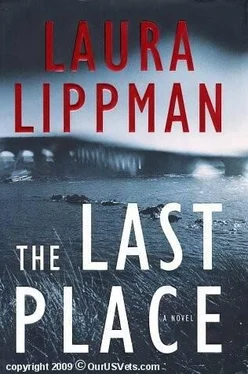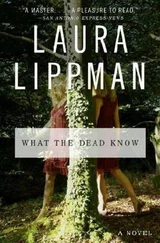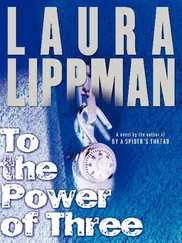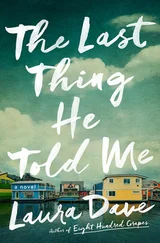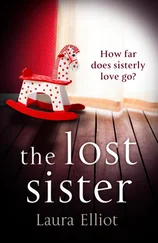“It looks like someone’s shop project,” Tess said, grateful for the Corner Stable’s reliable gloom. “And not even a high school shop project, but middle school shop, or from the arts and craft class at a camp for children with no motor skills.”
“I know it’s kitschy, but I thought it was good kitsch, not bad kitsch.” Whitney never sounded more WASPish than when she attempted a word like kitsch, which wasn’t Yiddish but should be. Still, her mere proximity to the item did give it a certain cachet. With her sharp-featured face and chin-length bob of butter-yellow hair, Whitney had an aristocratic air that was virtually contagious. The Corner Stable looked better because she was sitting in it, and the lamp was almost tolerable as long as she was holding it. Almost.
The problem was, Whitney couldn’t hold it all the time. Not unless she wanted to become the Statue of Liberty of Greenspring Valley, raising her mallard ducks to the skies, a beacon welcoming the waves of nouveau riche that continued to wash up on her shores.
“Trust me, it’s bad kitsch. If I look at it much longer, I’ll have nightmares. Which would at least give me something to talk about to Herr Doktor next week.”
“That’s right, your shrink. Are you cured yet? Or does he think you’re a hopeless case?”
“Actually, he seems pretty optimistic. But then, he hasn’t known me that long.”
Their meat arrived-a chopped barbecue sandwich for Tess, a well-done hamburger for Whitney. They had both been feeling particularly carnivorous today, and the Corner Stable was a good place to indulge such urges. Besides, Tess had thought it would be easier to drive north and away from the hospital than to fight the traffic toward downtown. She hadn’t realized that the suburbs were now more congested than the city, their modest streets carrying far more traffic than any planner had ever imagined. It had taken them almost forty minutes to creep five miles to this junky strip of fast food places and liquor stores near the state fairgrounds.
“You know, I would have taken you to McCafferty’s,” Whitney said, slicing off a bit of her burger to make sure no pink showed inside. Her taste buds had been destroyed by her mother’s indifferent cooking, and the various meat scares of recent years had made her only more determined to eat her beef shoe-leather brown. “My treat. Not that I don’t like a burger as much as the next girl, but I wanted to buy you a filet mignon.”
“I can’t stand to see what you do to a twenty-eight-dollar steak,” Tess said. “Besides, I keep telling you-you don’t owe me anything. Leaving you out of this mess was the best thing I ever did. Good Lord, if they had known there were two of us, that judge probably would have insisted we go to trial. And given Mickey Pechter’s avarice, your family’s deep pockets would have been enticing.”
“Still, maybe you should have gone through with a trial,” Whitney said. “It would have been a great opportunity to really humiliate that guy.”
“Yeah, it sounds good in theory. But when you’re faced with two choices-pleading to a misdemeanor that will disappear in six months or risking the vagaries of a jury trial-you realize just how dicey principle is. And how expensive. Tyner wasn’t working for free. I owe him a lot of work now.”
“Work. Yes, work. That’s really why I wanted to take you to lunch today.” When Whitney was full of herself, which was often, the blue-ness of the veins at her temple, throat, and jaw seemed to become more pronounced.
“What’s up?”
“I’ve got a job for you. A great job.”
“Whitney-no pity stuff, okay? Let me repeat: You don’t owe me.”
“This has nothing to do with our little escapade. In fact, it wasn’t even my idea to hire you. Someone else on the board asked me to tap you for this job.”
“Someone on the board? What board? Your family’s foundation thingie?” After several restless years in which she had effortlessly succeeded at anything she tried, Whitney had decided there was no shame in running her family’s charity. She liked giving away money. Moreover, she liked it when the city’s best and brightest came to her and begged for money.
“I guess it’s more a coalition or a consortium than a board. Nothing formal. But several local nonprofits that are interested in women’s issues have been brainstorming about ways to reduce the number of domestic-violence homicides in the state.”
“I know how,” Tess said. “Nothing could be simpler.”
“Really?”
“Every time a man is so brokenhearted that he decides to go out and kill his girlfriend and then kill himself?”
“Yes?” Whitney leaned forward, her food forgotten.
“Just convince him to do the suicide part first.”
“Honestly, Tess, this is serious. We want to show a significant decrease in the number of domestic homicides statewide.”
“I can’t imagine it’s a very big number to begin with,” Tess said. “Not as a percentage of the whole.”
“Exactly,” Whitney said. “Which is why there’s no political will to attack the problem. Yet it’s perhaps the most preventable category of homicide, if you think about it.”
“Maybe. So take it to the legislature.”
“We were oh-for-four there during the General Assembly session that just ended. We couldn’t get one bill out of committee. The chairman of Judiciary put them all in a drawer and wouldn’t even take a vote on them. It didn’t help our cause that the creep who killed all those people and took his girlfriend’s family hostage had been treated right by the system. The lawmakers basically threw up their hands and said they couldn’t come up with preventive measures for crazy people.”
“Please,” Tess said. “Those of us with mental health problems prefer to be known as reality-challenged.”
“Very funny. Anyway, next year we have to go back with better information, more persuasive arguments.”
“Where do I fit in?”
“One of our members believes the rural police departments and the state police, which don’t handle a lot of homicides, may have bungled some domestic cases. We have files on five open murder cases from all around the state. We need someone to reexamine them, review the police work-”
“Review police work? On old cases? Jesus, Whitney, that’s impossible.”
“They’re not that old, six years at the most. The most recent was last December. We’re not asking you to solve these cases, Tess. We just want to know what the police did and if the victims’ significant others ever went on to hurt anyone else. If we can find even one case where sloppy, inexperienced police work left some creep at large, we can lobby for funding and training for small-town cops. C’mon, Tess. How often do you collect your hourly fee and do some good at the same time?”
Tess smiled ruefully. Whitney should know she wanted nothing more. The private detective’s life was a sleazy one at times. Even a PI like herself, who turned down divorce work, seldom felt altruistic. The thing is, she distrusted those who cloaked themselves in their own goodness. There was nothing more dangerous than people convinced of their own good intentions.
“We’ll pay your top rate and kick in a per diem when you’re out of town. The board won’t breathe down your back-a monthly report, maybe a face-to-face briefing after you’ve done some preliminary scouting.”
“And no press,” Tess said.
“What?”
“No media. I don’t want any of these eager do-gooder organizations sending out a press release, announcing their crusade. The local cops are going to be hostile enough when an investigator shows up and starts asking questions. We need to be discreet. How many people are on the board?”
Читать дальше
